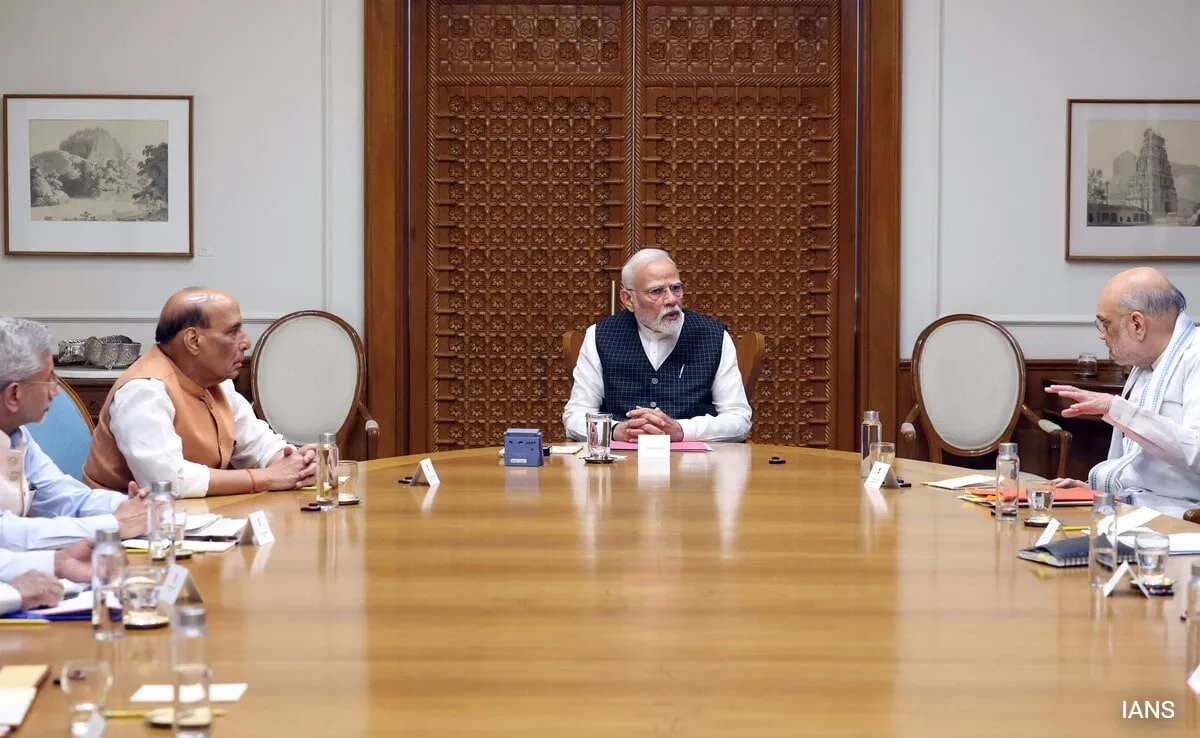
New Delhi: The Cabinet Committee on Security (CCS), which is the highest decision-making body on national security in India, has enacted stringent measures against Pakistan in light of the recent terror attack in Jammu and Kashmir's Pahalgam. This attack resulted in the tragic loss of 26 lives, including that of a foreign national. In response, the CCS has suspended the decades-old Indus Waters Treaty with Pakistan indefinitely, marking a significant escalation in tensions between the two nations.
The suspension of the Indus Waters Treaty means that water supply from the Indus River and its distributaries—including the Jhelum, Chenab, Ravi, Beas, and Satluj—will cease. These rivers are vital for Pakistan, providing water to tens of millions of people. The treaty, which was signed on September 19, 1960, with the World Bank's mediation, has withstood three wars between India and Pakistan (in 1965, 1971, and 1999) but is now rendered inactive.
During a briefing to the CCS, Foreign Secretary Vikram Misri detailed the cross-border linkages involved in the terrorist attack. He emphasized that this incident occurred after successful elections in the Union Territory and amidst its promising economic growth. Misri stated, "Recognizing the seriousness of this terrorist attack, the CCS decided that the Indus Waters Treaty of 1960 will be held in abeyance with immediate effect until Pakistan credibly and irrevocably abjures its support for cross-border terrorism."
In addition to suspending the treaty, the CCS has implemented several other measures, including:
Immediate closure of the Integrated Check Post at the Attari-Wagah border. Cancellation of SAARC Visa Exemption Scheme (SVES) visas for Pakistani nationals, with immediate effect. Expulsion of military officials from the Pakistani High Commission in New Delhi, declared as Persona Non Grata. Withdrawal of Indian defence advisers from the Indian High Commission in Islamabad. Reduction of staff strength in both High Commissions from 55 to 30 by May 1, 2025.Mr. Misri also indicated that the CCS has directed all security forces to maintain high vigilance and reaffirmed that the perpetrators of the attack will face justice. He highlighted India's relentless pursuit of those involved in terrorism, referencing the recent extradition of Tahawwur Rana as an example of India's commitment to combating terror.
Water Resources Minister CR Paatil expressed strong support for the decision to suspend the Indus Waters Treaty. He noted that Prime Minister Narendra Modi and Home Minister Amit Shah had previously issued ultimatums to Pakistan, indicating a history of India's firm stance against cross-border terrorism. Paatil stated, "This time too, the perpetrators shall not be spared. The suspension of the Indus Waters Treaty is a commendable decision by the Cabinet."
The Indus Waters Treaty, which governs the distribution of six common rivers, allows India rights to the Ravi, Beas, and Sutlej rivers, while Pakistan has rights to the Indus, Jhelum, and Chenab rivers. Despite being one of the few successful long-standing treaties between the two nuclear-armed rivals, the recent terror attack has pushed India to reconsider its commitment to this agreement.
In 2019, following the Pulwama attack, Prime Minister Modi had previously stated that "blood and water can't flow together," but chose not to act on the treaty at that time. The latest attack, claimed by the Pakistan-based terrorist group The Resistance Front, has led to decisive action from India. The Resistance Front is known to be an offshoot of the banned Lashkar-e-Taiba.
The suspension of the Indus Waters Treaty poses a significant concern for Pakistan, which is already facing a looming water crisis exacerbated by factors such as population growth, climate change, and poor water management. Historically, Pakistan has reacted strongly to suggestions of treaty suspension, viewing such actions as acts of war. India's recent decision underscores the growing frustration with Pakistan's continued use of terrorism as a state policy.
In summary, India's suspension of the Indus Waters Treaty and associated measures represent a pivotal moment in Indo-Pak relations. As tensions rise, the implications of these actions will likely reverberate through diplomatic channels and affect the lives of millions who depend on the river systems governed by this treaty.